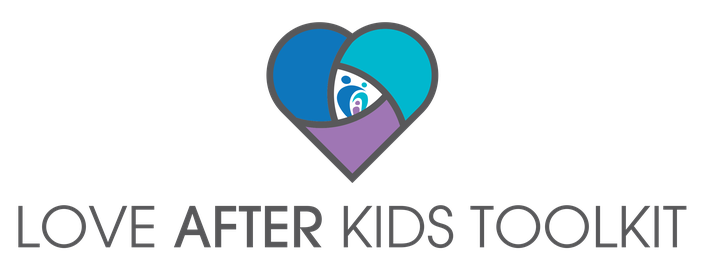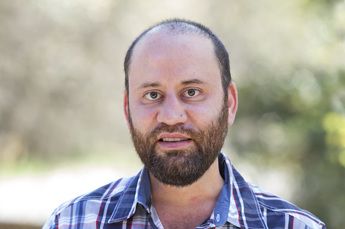
Your Instructor

Get started now!
What You'll Learn
The Love After Kids Relationship Toolkit is a program that was designed specifically for people that have struggled in their relationships since having kids, providing clear, accessible and practical solutions to revitalizing their relationships.
Few experiences within a relationship are more universal than the changes and challenges that occur when children are born – yet people don’t generally get the support and preparation they need for their relationships and raising a family. The Love After Kids Relationship Toolkit will empower you to take control of your relationship via a variety of proven knowledge, tools and resources.
You will discover how to:
- Reconnect with your spouse.
In the Love After Kids Relationship Toolkit, you’ll be able to get in the right mindset to face the challenges you’re experiencing in your relationship. You’ll learn how to look at your situation through a different lens so that you can start working on the foundation to reconstruct your marriage and make new connections with your partner. - Understand
the impact of habits and roles within the relationship.
When you’re seeking change, you need to understand the impact of your habits and the roles you play within your relationship. In the Love After Kids Relationship Toolkit, you’ll explore both subjects, how they impact you and your relationship – and most importantly, what you can do about them to achieve a healthy and mature romantic relationship with your partner. - Gain the tools to implement lasting change.
In the Love After Kids Relationship Toolkit, you’ll find practical and easy-to-apply strategies for communicating effectively, managing conflict and designing an applicable action plan for reclaiming your marriage. - Learn about the impact that kids can have on your relationship. Adding another person into the mix of your relationship will inevitably impact all the parties involved. In the Love After Kids Relationship Toolkit, you’ll be able to understand the ways that having children can take a toll on your relationship as well as how your children might be affected by the effects of constant parental conflict.
Experience:
- A proven system: As a licensed psychologist and couple’s therapist with more than 15 years of experience, after working with hundreds of couples – and my own marriage – I know that the Love After Kids Relationship Toolkit offers ways to get you back on track to discovering common ground and a new sense of togetherness with your partner.
- A program designed for individuals and couples: The Love After Kids Relationship Toolkit is designed so that you can work on it individually, or with your partner, so even if just one of you starts, you will find it immensely beneficial.
- A comfortable and confidential learning environment: The online platform offers a comfortable and safe environment for you to go through each step of the program with me guiding you. Each module has insightful videos and audios as well practical exercises and assignments to help you apply everything you learn in a pace that you are comfortable with.
- Convenience and flexibility: Not
everyone has the luxury of attending weekly couple’s therapy. The Love After
Kids Relationship Toolkit provides an amazing alternative means of working on
your relationship. While you can use it in conjunction with therapy, the
program was designed to save you a lot of time, money and energy with
real solutions to a real need.
Inside the Love After Kids Relationship Toolkit
Module 1: Introduction and the Problem with Complacency
In the first module, you'll be introduced to the ground rules and structure for how the program works and you'll learn about:
- The specific struggles that having kids can create in your relationship.
- The harmful effects constant parental conflict has on your kids.
- The importance of looking at your situation through a different lens—as an audience member of your own movie—so you can start working on the foundation of identifying and understanding your own habits within the relationship.
- You'll gain insight into how the brain works to process your emotions and feelings to then create states of being.
- You'll learn to identify the signs of complacency in your relationship, as well as practical strategies to break out of complacency.
- Exercises to help you stop living in a world of assumptions, and learn to communicate clearly with your partner to express your thoughts and feelings.
Module 2: Schema Therapy
We kick off the second module learning about several key concepts in Schema Therapy:
- We'll talk about what triggers are, where they originate from, and what the difference is between triggers and memories.
- You'll also do an imagery exercise to help you identify and understand your own triggers.
- We’ll delve into the three main coping styles proposed in Schema Therapy: avoidance, surrender and overcompensating.
- You'll be able to identify each coping style (often called defense mechanism) as well as understand how you're coping styles impact your relationship dynamics.
- You'll learn about some of the most common “parts” you can play, how they each work and how you can “reprogram” yourself to not fall into these parts and roles.
- You'll learn to distinguish between two main types of content, manifest and latent content, and how they each play into the relationship dynamics.
Module 3: Your Habits and Roles
In the third module we're going to talk about habits, specifically four types of habits: feeling habits, thinking habits, behavioral habits and interaction habits:
- Throughout the module, you'll explore all of your habits and how they are impacting you and your relationship—and most important, what you can do about them.
- You'll learn about the core roles in romantic relationships.
- How you can shift between these roles—instead of remaining locked in certain roles—to achieve a healthy and mature romantic relationship with your partner.
Module 4: Implementing Lasting Change
After gaining so much knowledge and understanding it’s time to implement what you've learned. In this module:
- You'll find practical and easy-to-apply strategies for communicating effectively in your own relationship.
- You'll learn how it is that conflict in a relationship can be positive—and how you can take control of your conflict situations and transform it into an opportunity for growth.
- You’ll receive simple and effective suggestions for you to battle complacency.
- You’ll learn to think about and pay attention to your daily routines so you can break off the habits that you don't want to keep living in and intentionally create new routines that are beneficial to the relationship.
- I’ll summarize the most important things we talked about during the program.
- We’ll close with a 12-step plan to get you started in designing an action plan toward getting the relationship you want.
